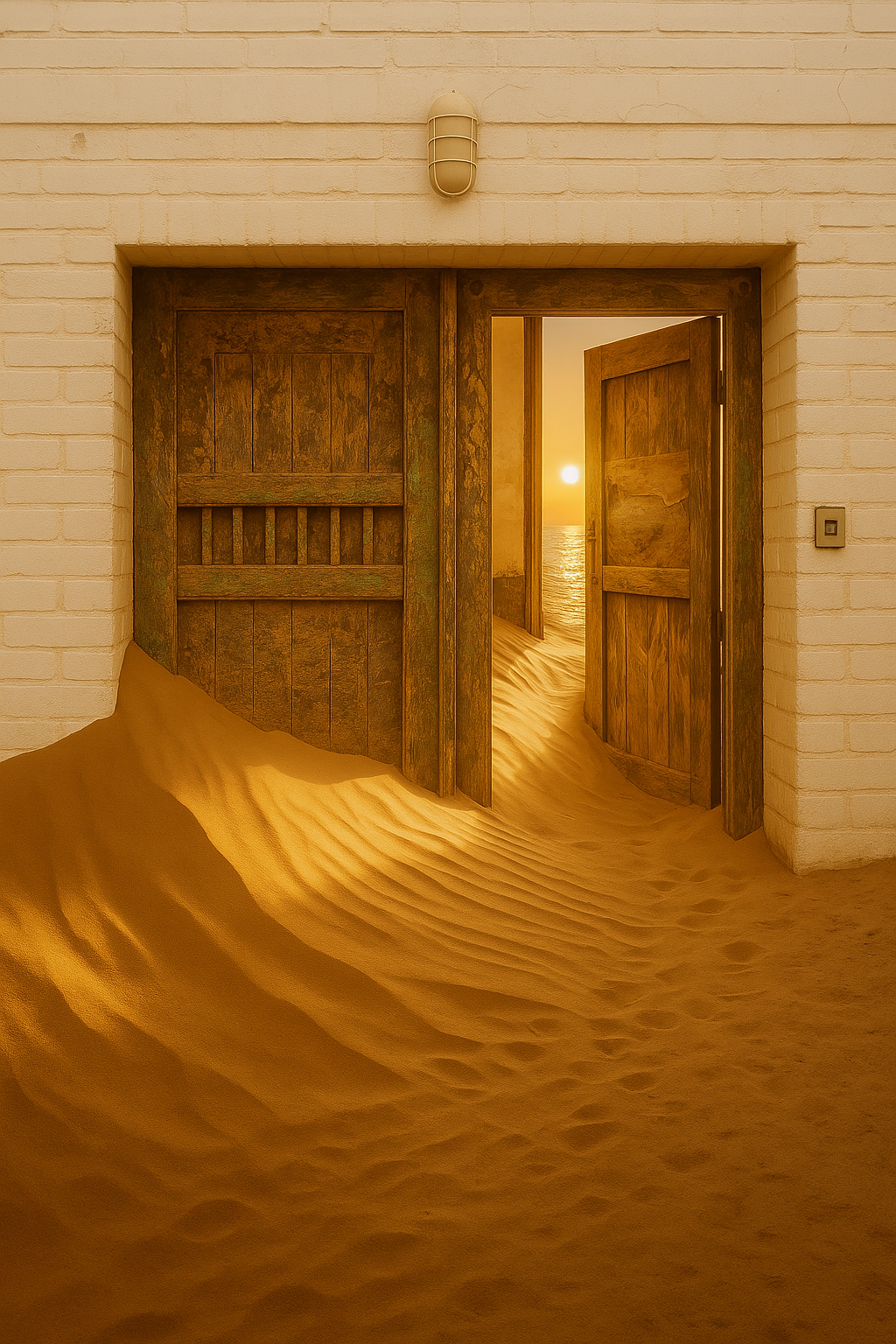Walls
1.
I believe time cannot heal the wound. Not really.
From my understanding, when people mention time as a way of healing, what they actually mean is that the human mind intentionally forgets certain things, especially when they have caused great pain to oneself. Must be the survival instinct, I thought. Otherwise how do you live on — with all that pain?
And yet somehow I have been exempt from that grace.
For me, forgetting is unnatural. Even when I think I have forgotten them, they come visit me at night, in my dreams. Multiple cities, streets, and familiar faces all get entangled into one. In dreams, I wander those places, often with an elated, but grave heart. However luminous, it’s not real, I tell myself. It’s only a past.
But my past life never goes away. The wall of memory is clear, and paper thin at the same time.
2.
Throughout eleven years of my yoga practice, this is the year of celebration: I have finally learned how to do a handstand pose.
When I first started my practice, the handstand pose — which basically means standing upside down with your head on your hands — was deemed as the most difficult pose in the world of yoga. Feeling certain I could never master such a difficult pose that required strong arms, perfect balance, and great patience, I didn’t even dare try. So imagine my gladness the day I was able to stand upside down on my own, my arms strong enough to support my full weight, my back straight and still.
However, to do the pose, one condition applies: I need walls.
3.
Along with my unforgetfulness, I also learned that people didn’t like it when I remembered everything — the places we’ve been to, the conversations we’ve had (often in verbatim), the food, the weather, the time, down to some very minor details such as the color of their clothes, the exact model of their car, the shape of their fingers, and so on. "What, you remember that?" is the most frequent response I’d get. A slightly discomforted look on their faces is what puts down my spirit.
So over the years, I have built a wall of pretense. Even when I knew exactly what the person talked about, or when they had already asked the same question before, I simply responded "Oh really?" with a faint, unknowing smile. Then they happily continued the talk, explaining me the things I knew already.
They say the hardest thing in the world is to forgive someone who has wronged you. I disagree: the hardest thing in the world for me is to forget.
4.
Yesterday, as I was practicing the handstand on the wall, I saw another student doing hers. She was a professional who had enough confidence to wear a slim strappy sport bra in bright cherry red and black short leggings, who didn’t need the wall and could even do a little variation. After watching her briefly, I turned back to the wall, dropping my gaze down at my hands.
“The walls are not just here to support your legs.” A female voice came from above.
I looked up: my yoga instructor was smiling at me, gently touching the wall. The wall that appeared light grey during daytime now looked warm yellow under a tall night lamp. A large ceiling fan was slowly rotating its blades, cooling my wet skin.
"It’s here to tell you that you’re safe, that you won’t fall or get hurt even if you fail."
I blinked.
5.
After finishing these four short entries, I struggled with the fifth, the section that was supposed to conclude the entire writing with awe and insight.
In my first draft, I said I found the many walls of my life — the wall of forgetfulness, the wall of memory, the wall of pretense, and the physical wall — to be neither offenses nor defenses. That I was okay with them.
In another version, I leaned on a more conventional plot: I said that my need for the walls no longer shamed me. I then extended the thought by stating that I now recognize their quiet, unwavering love. That the wall was always there for me, waiting and watching me in the quiet. That perhaps, it was me who had become the wall.
But none of it sounded right.
Uncertain, I let the writing sleep on my desk for a night or two. For there was no need to rush toward a fast conclusion. I’ve learned that when the time is ripe, the right words will arrive on their own, speaking before I know their names.
And until then, I’m here. Everyday and everywhere in the city, reading, writing, thinking, and dreaming of what was once real.
